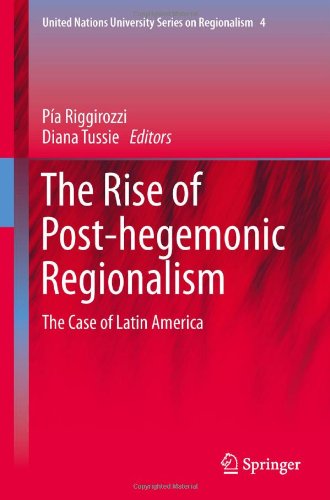

Most ebook files are in PDF format, so you can easily read them using various software such as Foxit Reader or directly on the Google Chrome browser.
Some ebook files are released by publishers in other formats such as .awz, .mobi, .epub, .fb2, etc. You may need to install specific software to read these formats on mobile/PC, such as Calibre.
Please read the tutorial at this link: https://ebookbell.com/faq
We offer FREE conversion to the popular formats you request; however, this may take some time. Therefore, right after payment, please email us, and we will try to provide the service as quickly as possible.
For some exceptional file formats or broken links (if any), please refrain from opening any disputes. Instead, email us first, and we will try to assist within a maximum of 6 hours.
EbookBell Team

5.0
48 reviewsThis book offers a timely analysis, and a novel and nuanced argument about post-neoliberal models of regional governance in non-European contexts. It provides the first in-depth, empirically-driven analysis of current models of regional governance in Latin America that emerged out of the crisis of liberalism in the region. It contributes to comparative studies of the contemporary global political economy as it advances current literature on the topic by analysing distinctive, overlapping and conflicting trajectories of regionalism in Latin America. The book critically explores models of transformative regionalism and specific dimensions articulating those models beyond neoliberal consensus-building. As such it contests the overstated case of integration as converging towards global capitalism. It provides an analytical framework that not only examines the 'what, how, who and why' in the emergence of a specific form of regionalism but sets the ground for addressing two relevant questions that will push the study of regionalism further: What factors enable or constrain how transformative a given regionalism is (or can be) with respect to the powers and policies of states encompassed by it? and: What factors govern how resilient a given regionalism is likely to be under changing political and economic conditions?